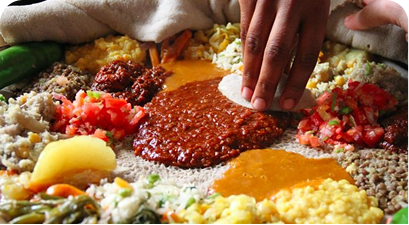Dateline – A quiet revolution is happening in pantries across the country: African spices and sauces are nudging aside the usual lineup of soy sauce, pasta sauce, and BBQ marinades. From berbere (the aromatic Ethiopian spice blend) to yassa (a tangy, onion-based marinade from Senegal) and mafe (a peanut-infused stew base common in parts of West Africa), these tools of the trade are expanding Americans’ culinary comfort zones.
A New Era of Flavor Exploration
International grocery aisles once catered primarily to diaspora communities, but global tastes have gone mainstream. Recipes featuring berbere-roasted vegetables, yassa-marinated fish, or mafe-inspired bean stews now appear on cooking blogs and college cooking forums. The result? A wave of home cooks—both diaspora members reclaiming heritage and curious novices—embracing African staples for their versatility and robust flavors.
“Before, I stuck to basic seasonings,” admits a college athlete adopting healthier meal-prep habits. “Now, these African blends have opened a whole new world.”
Why These Staples Are Catching On
-
Accessibility: More supermarkets stock African products, making them easier to find.
-
Health Appeal: Many recipes built around these spices center on whole foods and minimal additives.
-
Cultural Curiosity: Americans are increasingly exploring the cultural mosaic that makes the nation’s culinary identity so rich.
Enter Faida Foods
Amid this surge in interest, Faida’s Original Sauce simplifies the leap into African-inspired cooking. A single bottle contains balanced African spices that can flavor everything from rice bowls to protein dishes. Looking for more flavor or a healthier alternative? Faida’s Hot Sauce promises a health-forward kick rivaling Sriracha, giving new life to everyday meals for thrill-seeking palates.
Beyond Taste: A Cultural Journey
Each spoonful of berbere or splash of yassa is a lesson in Africa’s diverse culinary traditions. For diaspora families, it’s a nostalgic embrace; for fitness gurus, a clean, flavor-packed alternative to sugary sauces; for busy students, an efficient way to transform leftovers. Ultimately, these flavors embody a cultural connection, revealing how African cuisine can delight palates and bridge communities worldwide.
References
- Saveur’s exploration of African pantry staples, 2023
- Tasting Table’s guide to using berbere in everyday cooking, 2021
- Historical writings on West African peanut stews and their diaspora evolution









